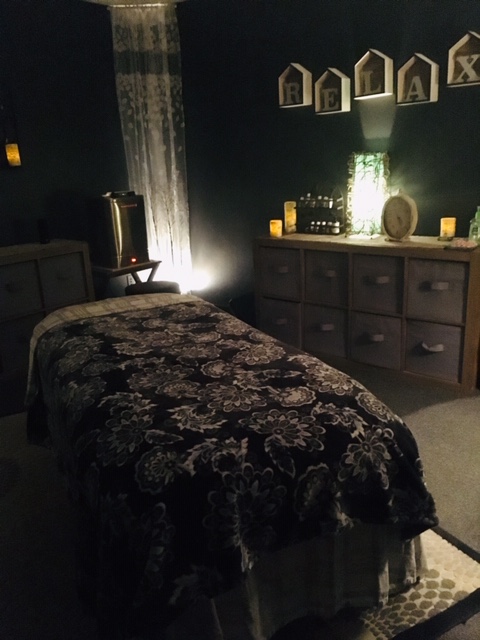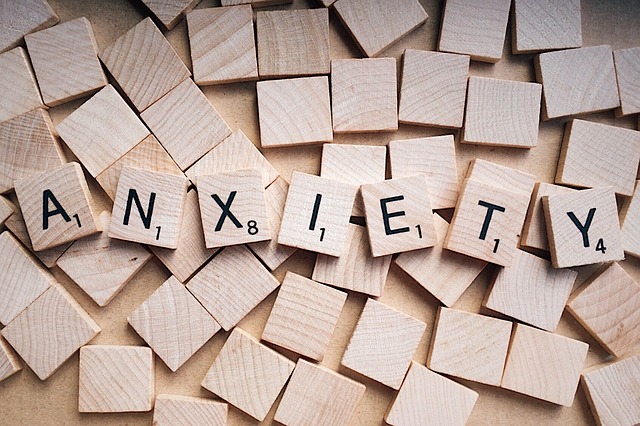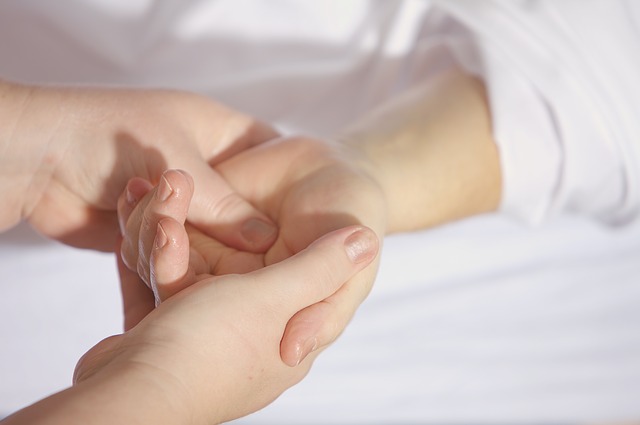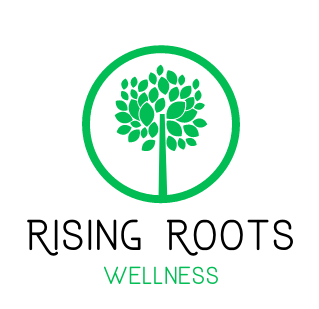The Power of Touch

What if I told you that in just an hour, you could reduce stress levels and anxiety, relieve pain, increase circulation, and lower your blood pressure?
Time for a massage!
Most of us are familiar with getting a massage to relax or feel pampered, but touch therapy can have *huge* benefits for many medical conditions as well.

I am so blessed to be able to work as a massage therapist. Since I was a kid, I’ve always known (or sensed) how powerful touch can be. In my family, hugs and cuddles were abundant. Physical expressions of affection like hair tousling and back rubs were the norm. We were a touchy family and I loved it!
I remember offering “massages” to my mom’s friends when I was younger. Even then, I loved the connection and got such a boost from making someone else feel good. After high school, I worked in office jobs for awhile. Then one day, I heard about an open house at a massage school in the area. I went and basically spent the entire time with lights flashing and fireworks going off in my brain, just thinking ” THIS IS IT! DO IT! IT’S PERFECT!” As the presenters talked about massage as a career and what we could expect to learn, I fell in love.
Seven years since I graduated, and I still sometimes can’t believe that this is my job. I mean, it is a job, of course. Massage can be tough on the therapist’s body, and it definitely isn’t what I’d call “easy money”. All that being said, it is an absolute privilege to connect with people on this level and I’m grateful for that opportunity every time I walk in to our studio.

Since massage feels sooo good, a lot of folks might think of it as a luxury. In reality, it can be a powerful and effective treatment for a laundry list of ailments. Massage is drug-free, nasty side-effect free, and usually far more pleasant than some of the standard options. Read on to explore what bodywork can do for you!
*Reduce Anxiety*
We’re probably all familiar with the concept of reducing stress with massage. But did you know that the effects of massage on the brain can last well beyond the end of your session?
This study from the journal Depression and Anxiety showed a 50% reduction in anxiety symptoms in participants after 12 weeks of regular massage. All on its own, this is an amazing statistic. Even more promising? The study participants retained these results months after their therapy sessions had ended!

Massage therapy lowers cortisol (a hormone produced by our bodies in response to stress) levels by up to 30%. It also triggers the release of beneficial hormones like oxytocin and serotonin into the bloodstream.
Receiving massage also increases body awareness and brings a sense of connection to another person. This can be incredibly beneficial to someone who is feeling disconnected and isolated because of anxiety.
*Ease Headaches*

I once had a client who told me during her first session that she had been fighting chronic, painful headaches for months, with no relief. By chronic, I mean every. Day. She’d visited many doctors, specialists, and other bodywork practitioners with minimal results. This woman had undergone blood tests and MRI scans, and no one had been able to give her any information or help her get out of this chronic pain cycle.
After a couple sessions, she was beginning to celebrate headache-free days. A few more sessions passed, and her headaches had become more of an occasional nuisance instead of a daily, in your face hassle. My client needed work on her sternocleidomastoid muscles (SCM for short, because that one is a mouthful!). Releasing these tight muscles was all that she needed to start feeling better.

Side note- I feel tight SCM muscles on a huge percentage of my clients. Our head forward, looking down at our phones posture makes these muscles really unhappy. Ask your massage therapist to check them out for you at your next session!
There are a number of different ways that muscle tension and trigger points can cause headaches. Massage is a wonderful, non-medicated way to treat the source instead of just masking the discomfort.
*Carpal Tunnel Symptoms*
Hand and wrist pain, or issues like numbness and tingling, can be common in a number of professions. Anyone who spends their day at a computer, of course, is at risk for developing carpal tunnel or similar conditions. You can also add hair stylists and assembly line workers to that list, as well as anyone who enjoys a hobby that includes repeating the same arm movements again and again (musicians, knitters, etc).
It’s important to note that not all numbness/ tingling/ pain in the hands is due to carpal tunnel. There are definitely other causes for those symptoms- carpal tunnel is just so well known that we have a tendency to jump to that explanation.
True carpal tunnel syndrome (CTS) will present with the following signs:
- Tingling and/or numbness in the thumb or first 3 fingers. If you’re feeling it in your pinky finger or on that side of your hand, it probably isn’t CTS.
- Hand pain at night or when you first wake up
- Positive results on one of these tests: Phalen’s Test or Tinel’s Sign
Massage can aid in breaking down restrictions in fascia and muscle tissue caused by trauma or overuse. Additionally, relaxing tight wrist flexor muscles (on the inside of the forearm) helps restore full range of motion, easing friction on the irritated nerve. Working specifically on the involved tendons and ligaments can reduce pressure on the nerve as well, which results in a further reduction of symptoms.

In this study, participants suffering from CTS symptoms received targeted massage once a week for four weeks. At the end of the trial, participants reported a decrease in pain and improved grip strength. Considering how long some people suffer with carpal tunnel before seeking treatment, that kind of improvement after just 4 weeks sounds pretty amazing!
This is just the tip of the iceberg when it comes to the huge array of issues that massage and other bodywork therapies can help with. Not sure if it could be a solution for you? If you don’t want to rely on Dr. Google to find out, just call a massage therapist near you! Any therapist should be more than happy to answer your questions about whether massage is an appropriate avenue of treatment before you schedule a session.
How has massage helped you? Let me know in the comments below, or over on my Facebook page. I never get tired of hearing your success stories!
